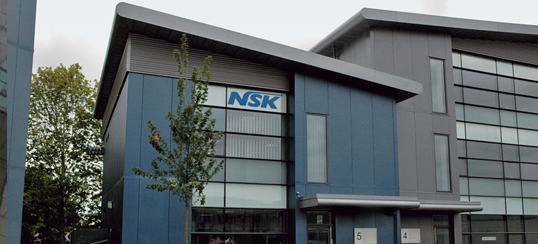NSK's Success Story in County Durham Sours on Impending Closure of UK Factories
Unite the Union opposes NSK's plan to shut UK operations, which could threaten 400 jobs

NSK Ltd. established its UK operations nearly 50 years ago, opening a plant in Peterlee, County Durham. The bearing manufacturer was the sixth Japanese company to invest in Britain's manufacturing sector. Once a success story of foreign investment, that narrative now faces uncertainty with plans to close two factories.
According to reports, NSK's Japanese parent company announced a restructuring plan for its European operations. The move has met with strong opposition from Unite the Union, the UK's largest trade union, which warns that approximately 400 workers could lose their jobs.
Steve Bush, Unite's national officer, called on the government to intervene and safeguard Britain's automotive supply chain amid fears of widespread job losses and economic impact.
Financial Pressures and Strategic Restructuring
NSK has stated that the factory closures are not immediate but will take place no later than March 2027. The management emphasises that the restructuring is necessary due to declining European car production and financial challenges stemming from low profitability in locally manufactured products. Rising competition from Asia further threatens the company's European footprint.
A company spokesperson explained: 'This proposal is no reflection of the workforce, who have been incredibly loyal for many years, some their entire working careers, showing huge commitment and best-in-class performance.'
Despite this, the news has been met with disappointment and concern among employees and union representatives.
The Human Cost and Industry Response
The two factories primarily produce bearings for the automotive industry, supplying both fossil fuel and electric vehicles. Bush highlighted that the staff have consistently met or exceeded performance targets, making the closure decision particularly shocking.
Unite's general secretary, Sharon Graham, condemned the plan, describing it as a 'complete betrayal' by NSK of its County Durham workforce. She added: 'There is a viable business case for keeping these sites open, and Unite will fight tooth and nail for that to happen.'
Main customers of NSK UK-produced components include Volkswagen and Renault, both of which rely on these bearings for their vehicle lines. Bush stated, 'NSK doesn't need to close these factories, and Unite will be forcefully making that point during consultations.'
The broader context includes the ongoing crisis facing automotive parts suppliers, driven by the industry's shift away from internal combustion engines towards electric vehicles. Countries globally are setting ambitious climate change goals, including reducing greenhouse gas emissions and air pollution, which is accelerating industry restructuring.
Structural Reforms and Future Outlook
NSK Bearings Europe Ltd and AKS Precision Ball Europe Ltd, UK subsidiaries of NSK Europe, have begun formal consultations with unions and elected representatives. The primary focus is the potential withdrawal of production at the Peterlee sites in County Durham.
NSK Europe, established in 1963, expanded rapidly as a manufacturer of high-quality bearings, ball screws, and linear guides, becoming well-positioned in the industrial sector. Now, the parent company is implementing structural reforms across its European operations, seeking to exit unprofitable businesses and reorganise production.
The upcoming consultation process aims to assess the impact thoroughly. NSK has pledged to communicate the outcomes promptly, including the overall effect on the business and employment.
An Uncertain Future for UK Manufacturing
While the story remains unresolved, the impending factory closures mark a significant turning point for NSK's UK operations. The union and workers are rallying against what they see as unnecessary cuts, amid broader industry shifts and economic pressures.
As negotiations continue, the fate of the Peterlee sites and the livelihoods of hundreds hang in the balance, highlighting the challenges faced by traditional UK manufacturing in a rapidly evolving global industry.
© Copyright IBTimes 2025. All rights reserved.





















